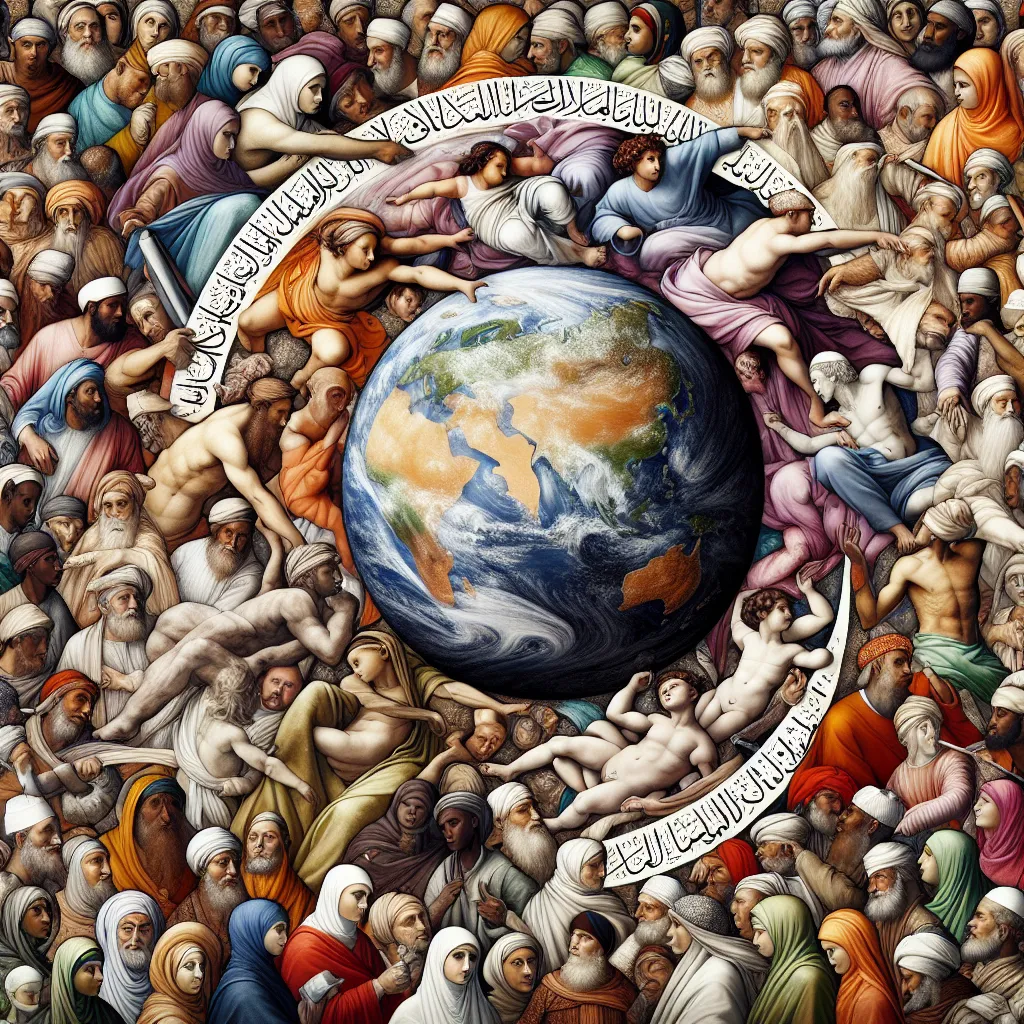
- Published on
- Authors

- Name
- You
The Concept of Ummah: The Global Muslim Community
The concept of Ummah is as profound as it is beautiful. Rooted in Islamic teachings, this term represents the global community of Muslim believers bound by common faith and collective identity. The idea of Ummah transcends geographical, racial, and cultural boundaries, weaving together the diverse tapestry of Islamic followers spread across the globe.
Origins and Definition
The term "Ummah" originates from the Arabic word for "community" or "nation." Prophet Muhammad (peace be upon him) significantly shaped this concept, emphasizing the brotherhood and unity among Muslims. As envisioned by Muhammad, the Ummah is more than just a religious congregation; it is a unified body of believers who support each other in every aspect of life—spiritually, morally, socially, and economically.
Core Principles of Ummah
Unity and Brotherhood: The Quran and Hadith emphasize the unity of Muslims, urging believers to foster brotherly love and avoid divisions. The Prophet Muhammad famously said, "The believers are but a single brotherhood." (Quran 49:10)
Mutual Support and Solidarity: The idea of Ummah is built upon mutual assistance. Wealthier members are encouraged to support those in need through Zakat (charitable giving), ensuring economic stability and social welfare across the community.
Collective Responsibility: The Ummah operates under a shared moral responsibility. This involves promoting good, forbidding evil, and collectively striving for justice and righteousness.
Implications of Ummah in Modern Times
Global Solidarity
One of the most visible manifestations of Ummah today is during the annual Hajj pilgrimage, where millions of Muslims from diverse backgrounds gather in Mecca. This event epitomizes the unity and equality at the heart of Islamic brotherhood.
Support Networks
Muslims worldwide feel a profound connection to each other, often demonstrated through global relief efforts, educational initiatives, and economic support. Organizations like the Islamic Relief or Muslim Aid illustrate how the principle of Ummatic solidarity translates into tangible aid and development projects around the world.
Challenges and Opportunities
While the concept of Ummah aims for unity, Muslims today face significant challenges such as sectarianism and geopolitical issues. However, the timeless principles of Ummah offer a foundation for resolving conflicts and fostering collaboration.
The Quantum and Mystical Dimension
The idea of Ummah also resonates with the quantum view of connectedness. Just as particles in a quantum field can influence each other regardless of distance—a phenomenon known as "quantum entanglement"—so too does the concept of Ummah suggest a spiritual interconnectedness among Muslims. This mystical unity, where one's actions ripple through the Ummah, echoes both the scientific awe of quantum mechanics and the poetic grandeur of spiritual unity.
Table: Comparison of Quantum Entanglement and Ummah
| Aspect | Quantum Entanglement | Ummah |
|---|---|---|
| Definition | Quantum particles influencing each other at a distance. | Global Muslim community united by shared faith. |
| Primary Connector | Quantum state or wave function. | Shared Islamic beliefs and practices. |
| Key Feature | Instantaneous influence irrespective of distance. | Spiritual, moral, and social solidarity. |
| Manifestation | Non-local interactions between particles. | Collective action, mutual support, global solidarity. |
Conclusion
The Ummah is a profound concept that embodies the essence of unity, support, and collective responsibility among Muslims. It serves as a timeless reminder of the power of faith in bringing diverse people together under the banner of shared values and mutual care. As we navigate the complexities of the modern world, the principles of Ummah provide not just a spiritual anchor but a model for building a truly supportive and connected global society. Just as the quantum realm dazzles us with its interconnectivity, Ummah inspires us with its vision of a united and compassionate humanity.
